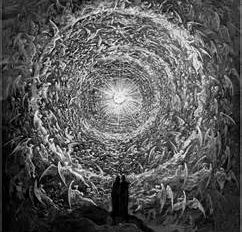Gen. 3:4, And the serpent said unto the woman, “Ye shall not surely die.” In this passage Satan contradicts the word of God in Gen. 2:17, “for in the day that thou eatest thou shalt surely die.” Considering the latitude given Evangelical text critics and the spirit of giving them the benefit of the doubt, perhaps it is time to do the same for the devil. After all, contradicting God’s word is a common practice of those who claim the name of Christ while maintaining a critical approach to the Scripture. For instance, consider the normative negation of God’s command found in Deut. 12:32, “What thing soever I command you, observe to do it: thou shalt not add thereto, nor diminish from it.” Contradicting the word, once considered a work of the Devil has gained respectability among the ecclesiastical intellectual elite and wandering sheep. And in this sphere of respectability, perhaps its time for the ecclesiastical social imaginary to recognize and accept the intuitive congruence between scholars and the Devil. Maybe it’s time for a kinder, gentler approach to the Devil; after all the contradiction of God’s Word has become so common place as to make it part of the fabric of modern ecclesiastical social imaginary. A less hypocritical Church would also be less critical of the Devil.
Also note the Devil’s quotation of Scripture in Luke 4:10, “For it is written, He shall give his angels charge over thee, to keep thee. And in their hands they shall bear thee up, lest at any time thou dash thy foot against a stone.” First note that the Devil introduces the quote from Psalm 91:11 in the same manner as does the Lord in verse 8. This shared convention of informing the reader that what follows is drawn from the Old Testament should be the first consideration why the modern Evangelical reader should consider tempering his/her attitude toward the Devil as a negative influence. After all, the Devil’s introduction to the Old Testament citation is exactly that of the Lord.
Secondly, please note that Psalm 91:11-12 is in the Hebrew text is 14 words:
כי מלאכיו יצוה-לך לשמרך בכל-דרכיך
על-כפים ישאונך פן-תגף באבן רגלך
In the BHS there is no entry in the critical apparatus for either verses 11 or 12; there are no other contending readings, LXX or otherwise, to the Hebrew text in these verses. The LXX in Psalm 91:11 is consistent with the BHS and reads, ἐν πάσαις ταῗς ὁδοῗς σου, “in all the ways of you” or “in all thy ways.”
Of the 14 words the Devil omitted only 2 — בכל-דרכיך – “in all thy ways.” That is, the Devil quotes the Scripture correctly 86% of the time, only deviating by the omission 14% of the time. This high ratio should fall under the accepted category of sufficiently reliable. Additionally, the omission “in all thy ways” could easily be considered superfluous. In the angelic realm, “in all thy ways” should be understood considering what the Scripture tells us about the power of angels. “In all thy ways” falls under the paradigm of changes that do not affect sound doctrine. There is a high degree of intrinsic probability of “in all thy ways” being inferred by what the Devil said without the necessity of it being restated. Thus, to quibble negatively about the Devil’s omission creates more heat than light.
And thirdly, what then, can we make of the claim made by the Apostle John in the Apocalypse chapter 12, verse 9, “And the great dragon, was cast out, that old serpent, called the Devil, and Satan, which deceiving the whole world: he was cast out into the earth, and his angels were cast out with him. Is the omission of “in all thy ways” really some kind of well-played, subtle, demonic deception meant to undermine God’s Word or merely an insignificant textual variant? Considering the continuity between the words of the Devil in Luke 4 and the words of Moses in Psalm 91, and the relative insignificance of the omission, it would be reasonably difficult to argue that the exclusion was any part of a grander scheme in “deceiving the whole world.” It seems reasonable that within the relative degrees of doubt allowed by the editors of the UBS Greek text, the Devil should be allowed equal latitude without accusing him of the moral sin of deception. Before harsh judgments are made, the Devil’s omission should first be given minimally either a C or D rating or a conjectural emendation. Additionally, the devil may have access to more ancient manuscripts not yet discovered. It only seems like the fair-minded, balanced, scholarly thing to do. After all, in the current social imaginary of the Therapeutic man our teleological perspective should focused on pleasing each other’s feelings.
